20 Products You Should Always Buy Generic
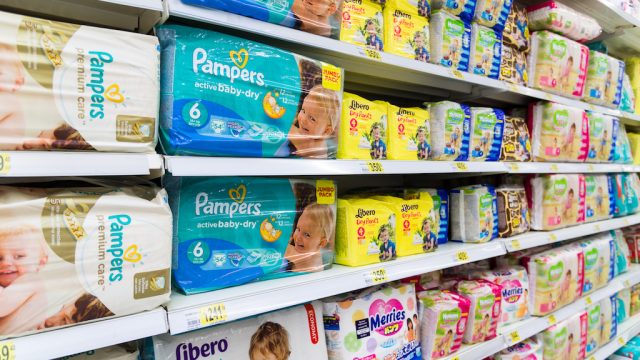
It’s easy to poke fun at generic brands. After all, Prongles, Thick Mints, and Mountain View—all of those are real, by the way— just don’t have the same ring to them as their name-brand counterparts. But just because these products sometimes bare funny names doesn’t mean you should dismiss them. Because when it comes to saving money, generic and store-brand items are often the best options out there.
To help you know which generic items are worth it, we’ve rounded up a list that will help you save without compromising quality. Obviously, you never want to splurge for Diet Dr. Pepper when Diet Dr. Bob will do.
1
Prescription and OTC medications

While purchasing some generic items is hit or miss, medications (both prescription and over-the-counter) are guaranteed to be up to snuff. That’s because the U.S. Food and Drug Administration (FDA) requires both generic and brand-name medications to conform to the same set of safety standards. “A generic medicine is the same as a brand-name medicine in dosage, safety, effectiveness, strength, stability, and quality, as well as in the way it is taken and should be used,” assures FDA.gov.
The only difference? Generic prescriptions tend to cost about 85-percent less than brand-name ones. The price gap is a bit less dramatic on over-the-counter medications, but you’ll still see savings. For example, at CVS a 100-count bottle of 200mg Advil costs $8.99, while a 100-count bottle of 200mg CVS Health-brand Ibuprofen costs just $7.49.
2
Baking ingredients
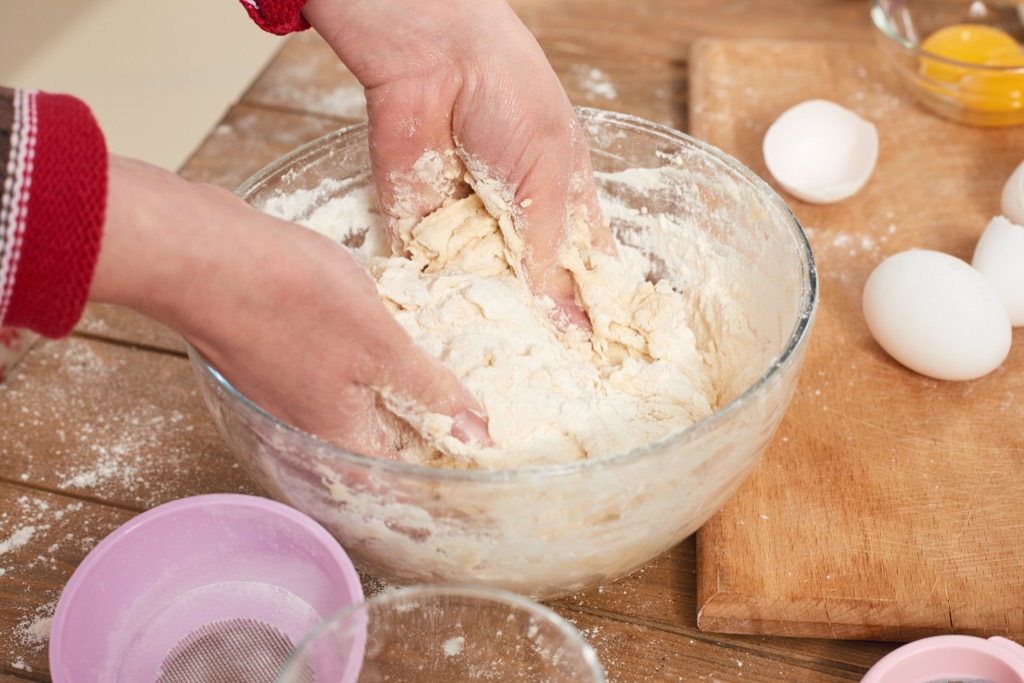
Turns out, there’s only so many ways to sell basic ingredients like flour, sugar, and salt—which means generic options are essentially the same exact thing as name-brand ones, writes Ramsey Solutions. That could save you some serious cash, depending on how often you bake. At the time of publication, a 2-pound bag of Target’s Market Pantry all-purpose flour cost just $1.09, while a 2-pound bag of King Arthur all-purpose flour costs $3.29.
3
Canned beans and vegetables
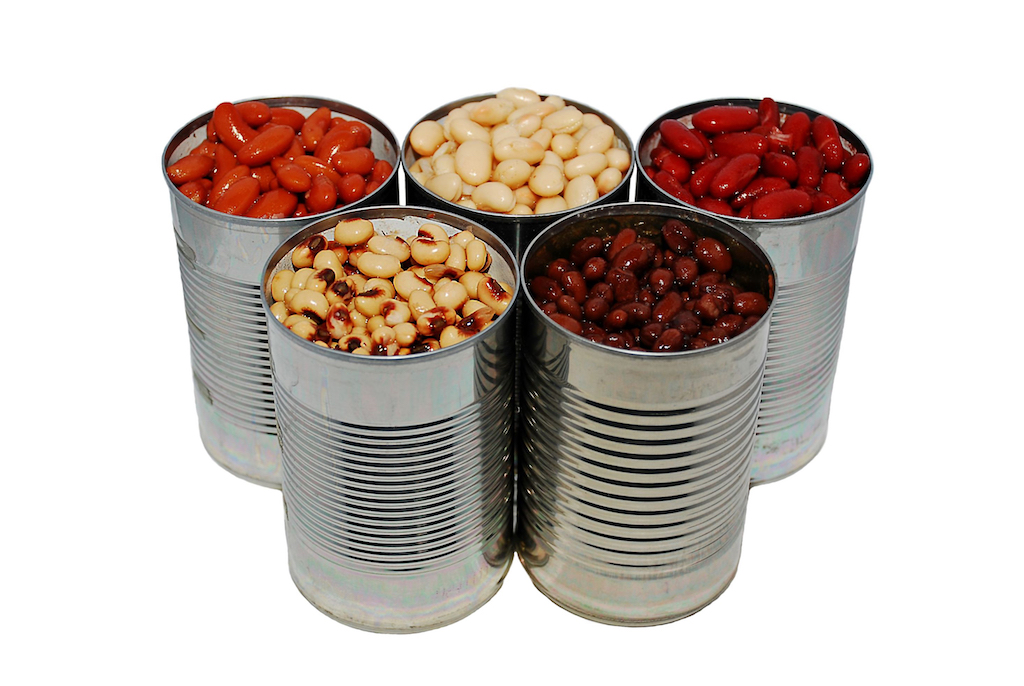
As the Daily Meal points out, it’s highly unlikely you’ll be able to taste the difference between a can of generic beans and a can of name-brand beans once your meal is cooked. The only thing you’ll want to watch out for is sodium content. Check the nutrition panel to make sure the generic option isn’t loaded with it, as they sometimes tend to be.
4
Cleaning products

Commercial cleaners, in general, have a scary rep, which means you’ll always want to read the ingredients list on any cleaner to make sure it’s something you’re comfortable with. And if you are, you’re just as good reaching for generic. For example, Target’s Up & Up brand disinfecting wipes and Clorox disinfecting wipes contain similar ingredients—but the Clorox brand costs about three-cents more per wipe. That adds up!
5
Baby formula
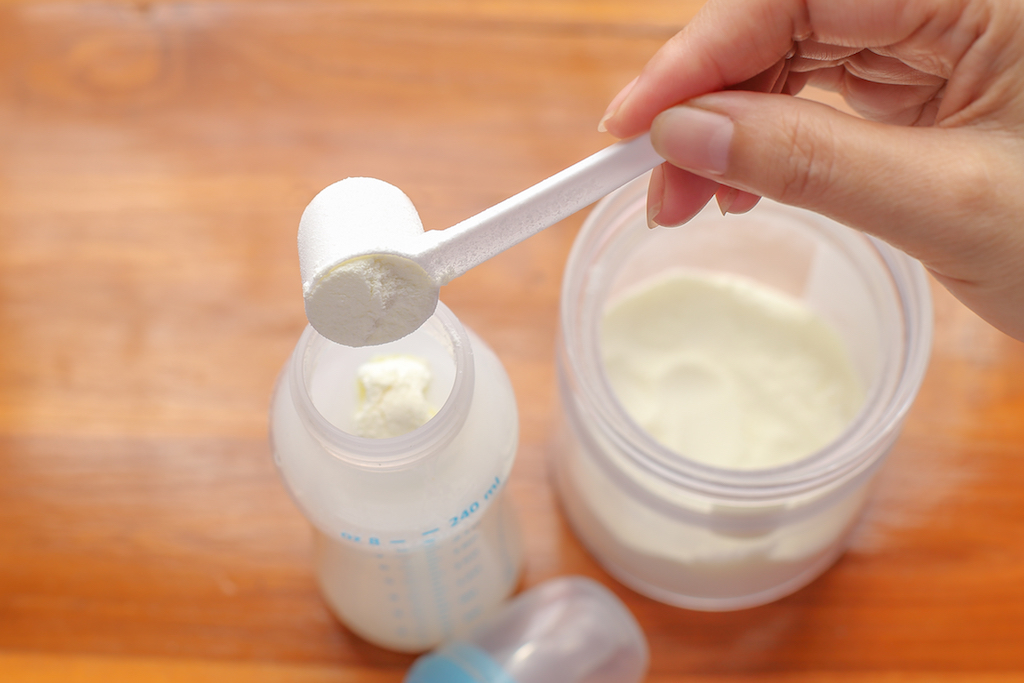
According to Consumer Reports, choosing a store-brand baby formula over a name-brand competitor will save you at least 30 cents an ounce. Plus, per standards laid out by the FDA, each formula marketed in the United States must meet a specific set of federal nutrient requirements. In short, store-brand baby formula will be just as nutritious as the more expensive name-brand formulas.
6
Spices
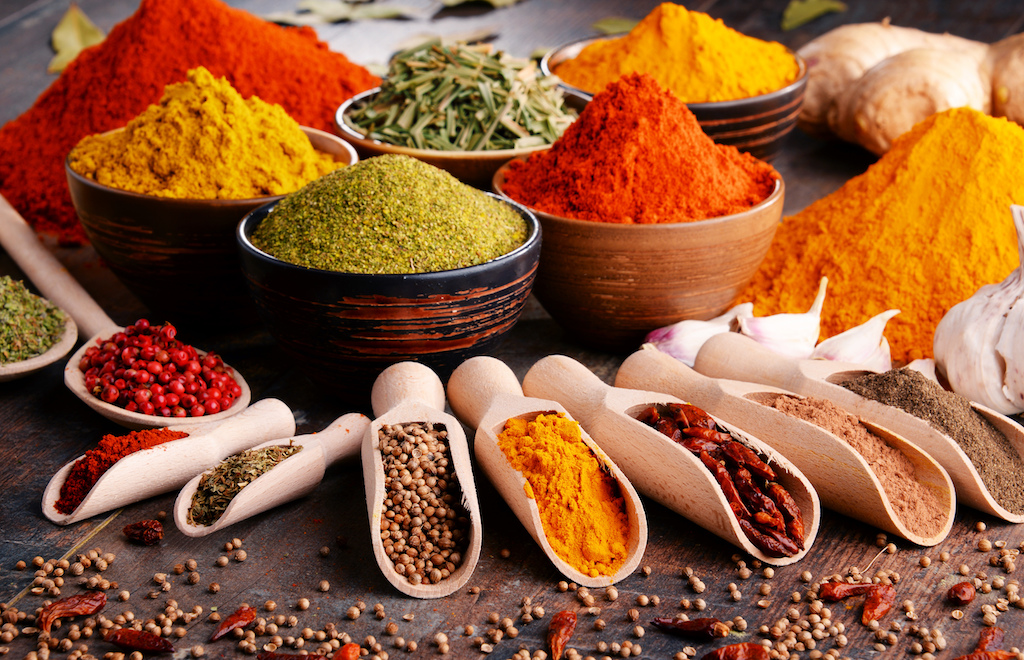
One University of Chicago study found that even professional chefs tend to use generic spices over name-brand ones. And as far as we’re concerned, if the pros do it, so should we. Spices are also regulated by the FDA, which means that whether you choose McCormick or Stop & Shop’s finest, your cupcakes will probably taste the same.
7
Milk
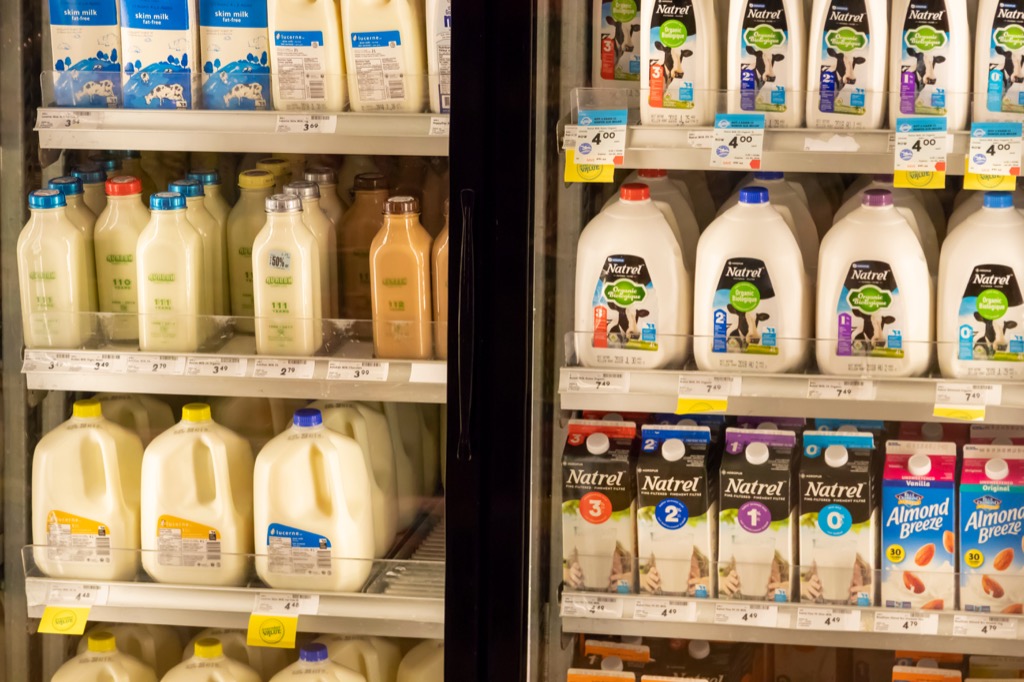
It’s no surprise that the freshest milk comes from as local a source as possible. And according to Money Talks News, that means both store-brand milk and costlier name-brand varieties tend to use the same dairy distributor. Save a few cents by buying generic.
8
Frozen fruits and vegetables

Whether you’re throwing them in a smoothie or sautéing them in a pan, you probably won’t notice a bit of difference between generic and name-brand fruits and veggies. That’s especially true if you’re shopping at a place like Whole Foods or Trader Joe’s, writes Eat This, Not That. Just make sure you choose bags with no added sauces or sugars. A piece of broccoli is a piece of broccoli, no matter what type of branding it’s got.
9
Paper goods
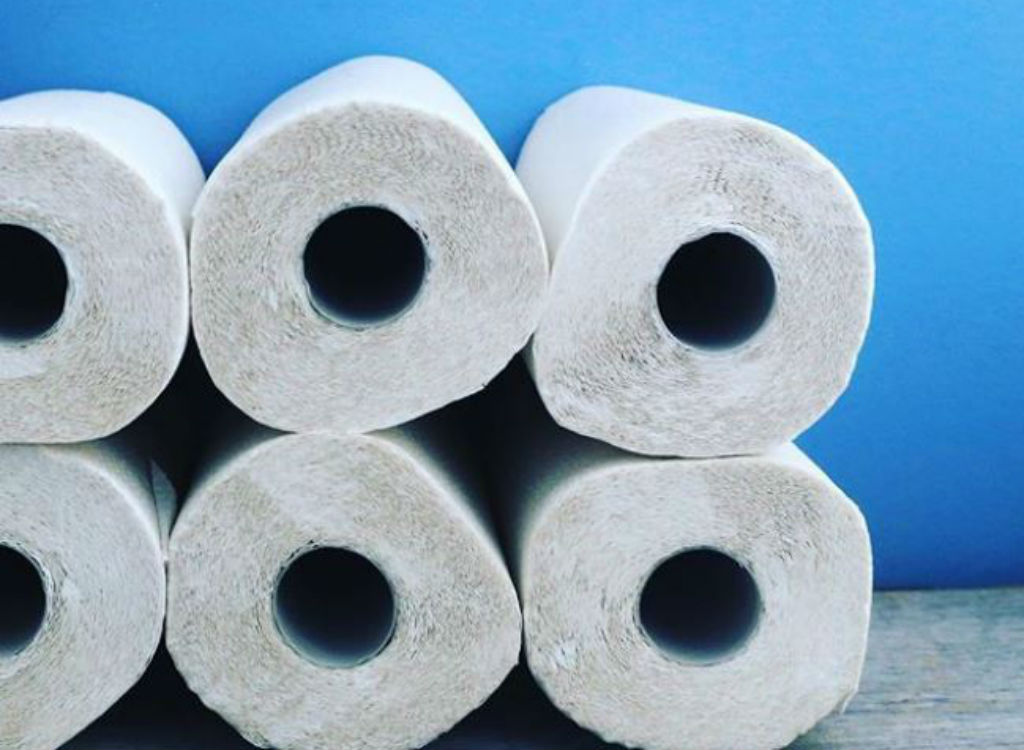
Opting for store-brand paper towels and toilet paper will save you a lot of money—as long as you know which store brands are actually worth it. According to Consumer Reports, Walmart is the best place to go to find the cheapest store-brand toilet paper, tissues, paper towels. If you’re in a pinch and can’t make it to Walmart, the magazine also reports that CVS has competitively priced toilet paper as well.
10
Shampoo and conditioner
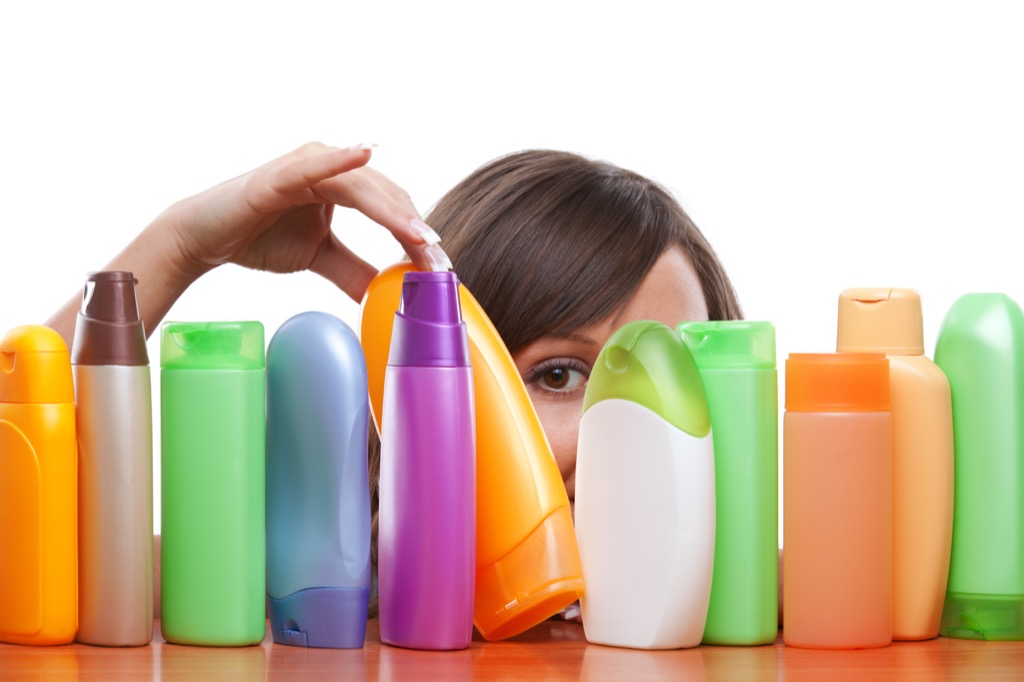
Contrary to popular belief, investing in your hair doesn’t require breaking the bank. In fact, according to salon professionals, there are a number of generic and drugstore-brand shampoos that are just as effective as their name-brand competitors. The haircare specialists told Refinery29 that Nexxus and It’s a 10, among several others, provide the most bang for your buck.
11
Sunscreen

Since the FDA requires all sunscreens to give consumers the same quality protection, what you’re truly looking for in this summer staple is a pleasant-smelling, nongreasy formula. And according to the money-saving app Brandefy, there are a number of generic brands that fit the bill. If you’re looking to save, the app recommends CVS Health SPF 50 Vanishing Zinc Sun Lotion and CVS Health SPF 50 Ultra Protection Sun Lotion for their quality ingredients (the ingredients panels on these sunscreens are nearly identical to the ones on brand-name products) and scent.
12
Water
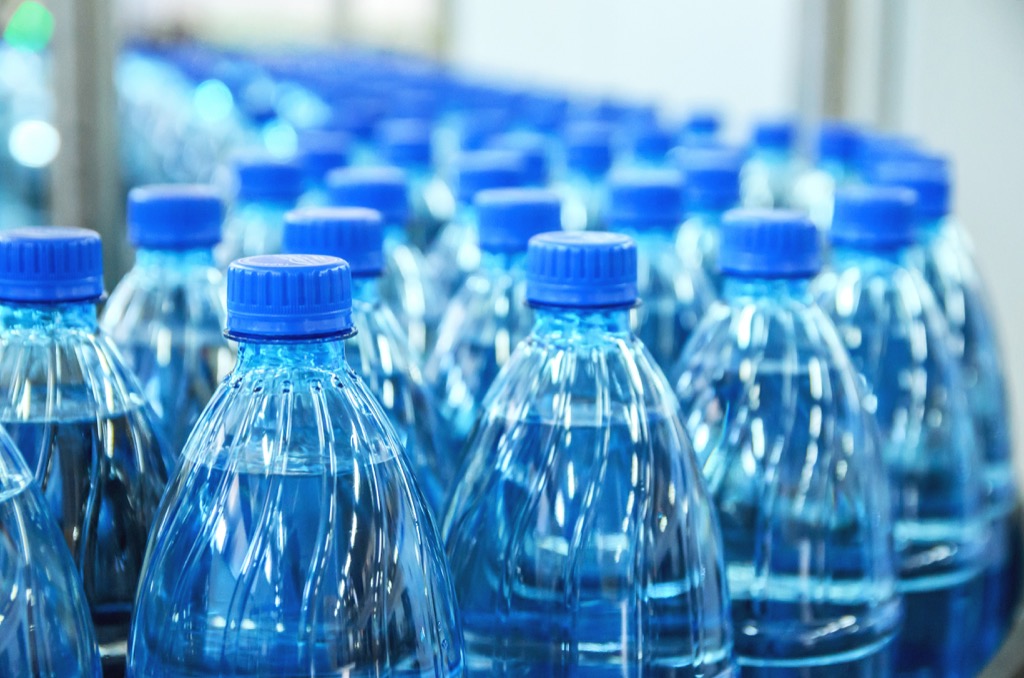
If you absolutely refuse to use tap water (or, unfortunately, can’t), then buying store-brand water versus name-brand water, like Evian or Fiji, will save you a ton at the grocery store, writes U.S. News. Something even cheaper? Investing in a filter and a reusable water bottle.
13
Pet food

No one wants to serve their pup anything less than the best. But as the Daily Meal points out, name-brand distributors often mislead consumers by adding healthy-sounding words and phrases that lead them to believe they’re purchasing the most nutritious option, even when a store-brand option is just as good. Take the time to read the ingredients to see which is best.
14
Diapers
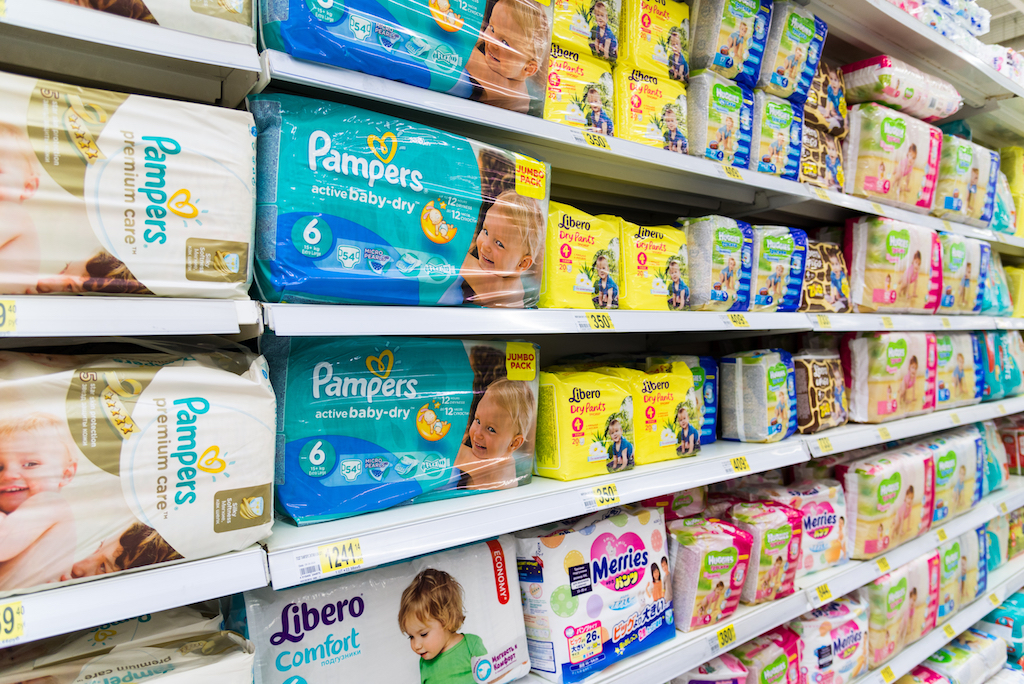
According to Consumer Reports, when purchasing diapers, you should always opt for the highest-count possible, as it will save you money down the line. To compound your savings even more, the magazine recommends buying store brand, too. They say the best ones are Target’s Up & Up, Costco’s Kirkland Signature, and Walmart’s Parent Choice.
15
Condiments (Except Ketchup)
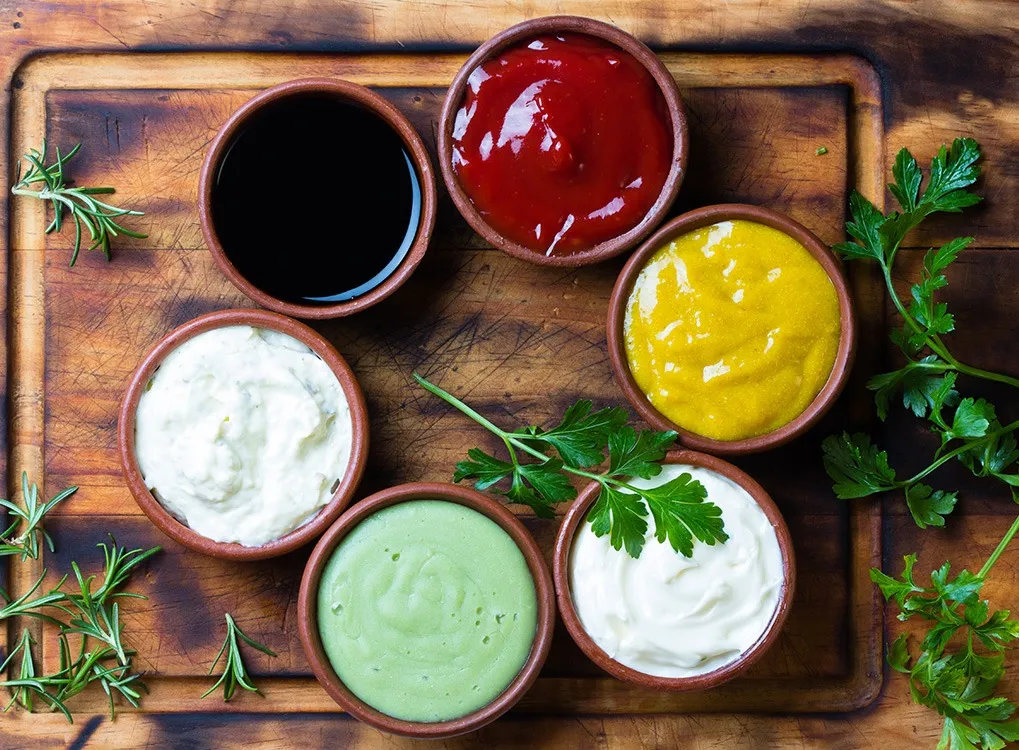
Condiments are some of the easiest items to save on—which is a good thing, since most families tend to go through them rather quickly. Store-brand options are nearly always comparable to their name brand counterparts. In fact, Whole Foods 365 brand offers customers discounted condiments that are also organic and GMO-free.
(The only exception is ketchup. Based on our totally unscientific analysis here at Best Life, we’re convinced that any brand but Heinz will taste subpar.)
16
Cereal
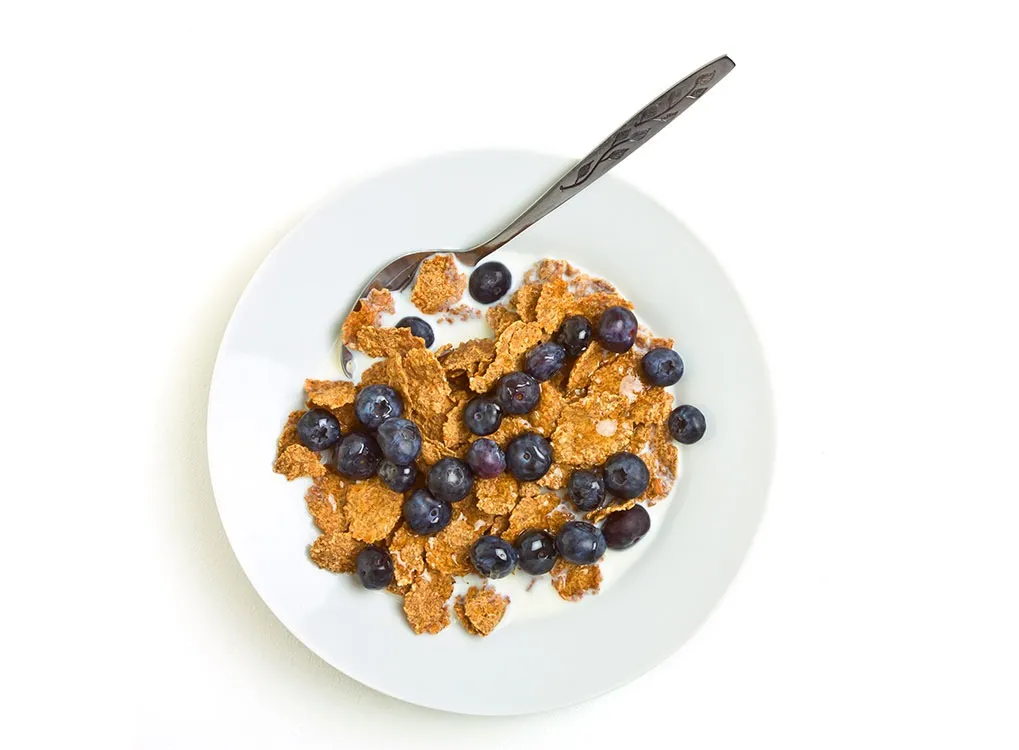
While generic cereals often have hilarious names—”Crisp Crunch”, “Fruit Spins”, and “Apple Orbits”, to name a few—you shouldn’t dismiss them. In one taste test by Thrillist, reporters found that most store-brand and generic cereals were more flavorful and contained better ingredients than their name-brand competitors. The best generic cereals turned out to be Cocoa Puffed Cereal and Crisp Berry Crunch.
17
Orange juice
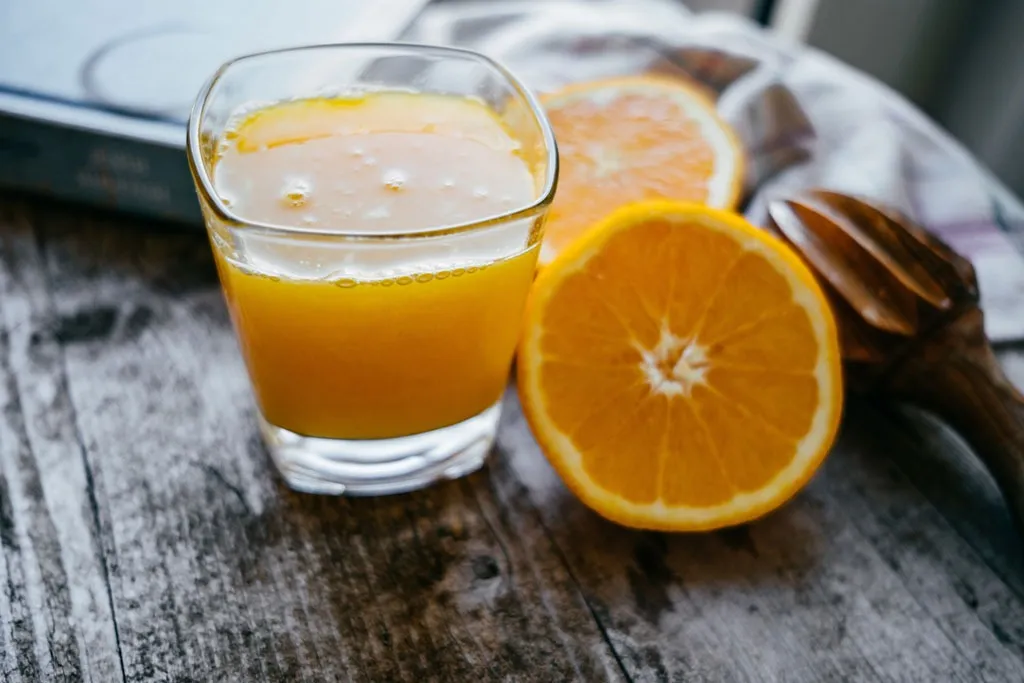
While fresh-squeezed orange juice typically scores highest on consumer taste tests, store brands, such as Whole Foods’ 365, are also crowd-pleasers, according to The Kitchn. Since store-brand orange juices often contain the same ingredients as their name brand counterparts, it’s a no-brainer that you’ll want to pick up the cheaper option.
18
Whole grain pasta
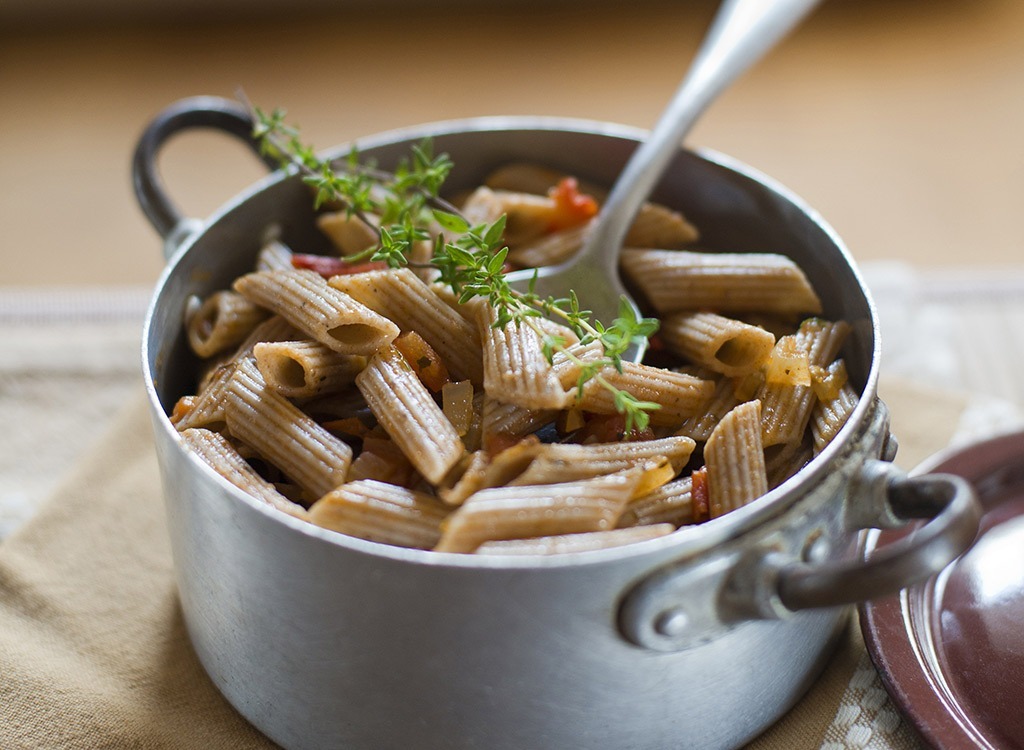
According to a Consumer Reports taste test, Whole Foods and Trader Joe’s have quality and inexpensive whole grain pasta compared to other name brand options. Pick them up for a pasta night that’s as low-cost as it is delicious.
19
Precut salad mix

Unlike other fresh produce—which you should always purchase fresh and unpackaged—precut salad mix is worth considering. And if you decide to buy it, it’s always less expensive, and just as healthy and delicious, to choose the generic variety, reported Business Insider. “Kroger’s bagged lettuce costs 89 cents on sale (regularly $1.79) versus Dole’s, which costs $1 on sale and is regularly priced at $2.79,” they write. Point taken.
20
Batteries

Though the USA Today acknowledges that generic batteries don’t last as long as their name-brand counterparts, the steeply discounted prices make them worth it, since you’ll still be saving enough money in the end.
To discover more amazing secrets about living your best life, click here to follow us on Instagram!